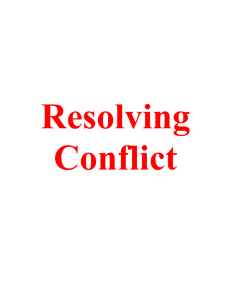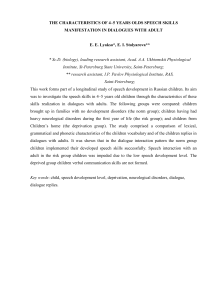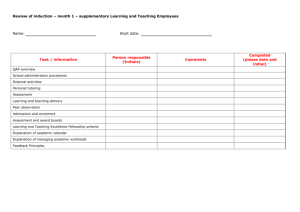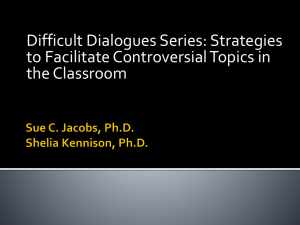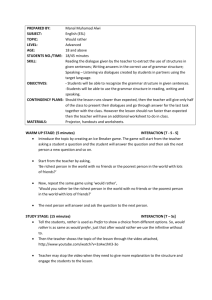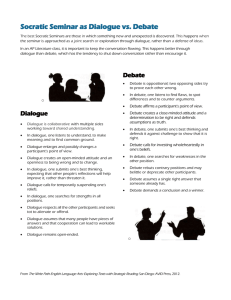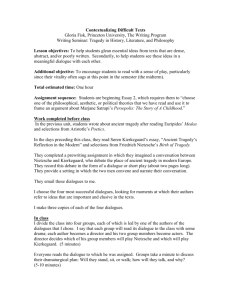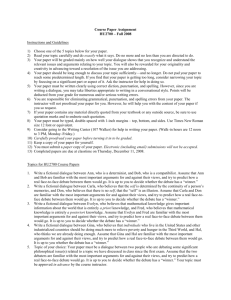The Difference Between Dialogue and Debate
advertisement
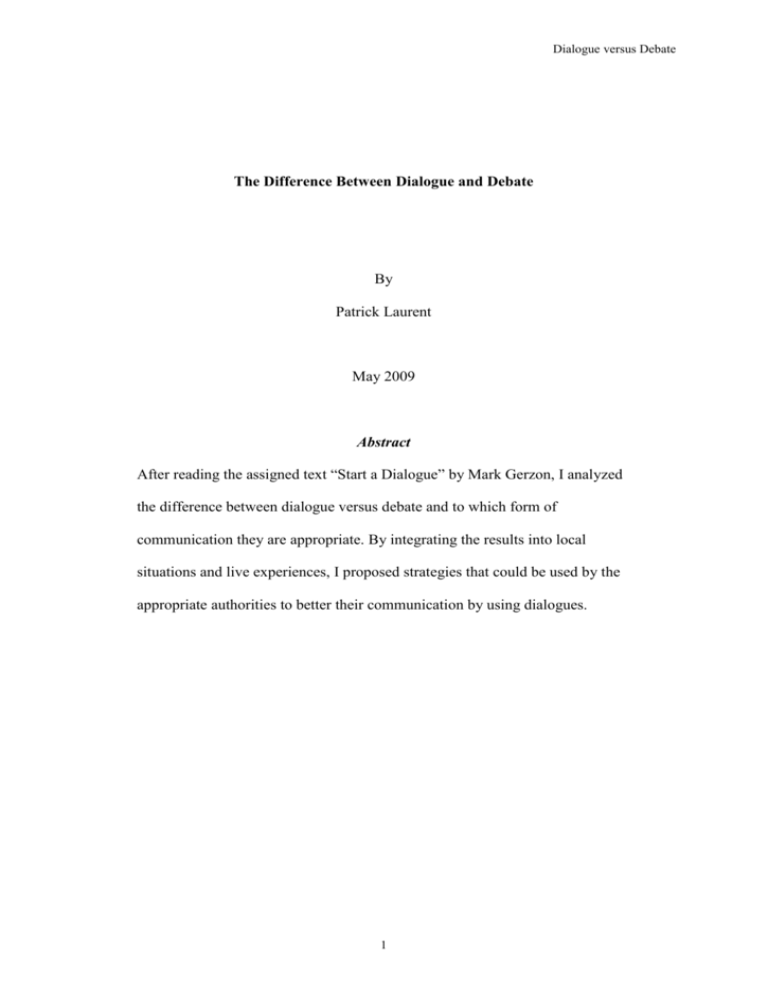
Dialogue versus Debate The Difference Between Dialogue and Debate By Patrick Laurent May 2009 Abstract After reading the assigned text “Start a Dialogue” by Mark Gerzon, I analyzed the difference between dialogue versus debate and to which form of communication they are appropriate. By integrating the results into local situations and live experiences, I proposed strategies that could be used by the appropriate authorities to better their communication by using dialogues. 1 Dialogue versus Debate The Origin of the Words : Our modern civilizations have been built on thousands of years of cultures, wars, changes and innovations. Romans, who already elected senators, used debates in the senate. Debate comes from Latin “De” meaning down and “Battuere” meaning fight and they excelled at intrigues and debating opposed ideas and beliefs. They were conquerors and mistrust was current within these powerful people. The Greeks invented philosophy and were far more advanced in innovating, literature, astrology and other human sciences. They used “Dialegein” which means discussing. Dialogue comes from Latin “Dialogus” which itself comes from Greek “Dia” meaning more and “Logos” meaning speech. Greeks had a culture of dialogues which pushed philosophers to talk among themselves and accept other points of view. Today’s applications: Both means of communication have advantages and problem characteristics depending on the situation in which they are used. It is possible to summarize their main characteristics by saying that they both involve communication between parties. Debate tends to have two sides with strong convictions. Each side will try its best to convince the other side or third party by using arguments. They will never agree with each other and it is the strongest who wins people over to their cause. There can not be an innovative progress in this kind of communication. This is used during political election to win over voters. However it is interesting to note that debate is used with the opponents, but dialogue is used with voters. 2 Dialogue versus Debate Dialogue is a discussion between people whose role is not to be right or to win over third party. Sharing, understanding, proposing and evaluating ideas and options are very common in dialogues and usually ends up with much more productive solutions for innovation. This means of communication should be used in businesses for which finding solutions and ideas are an absolute priority. Combining strength and brain power will always lead to improvement and usually much faster. Strategies for dialogues: People with authority should always lead the way. A leader does not impose his views. The final goals to achieve must be absolutely clear to people in the various groups, yet the way to get there should be open to discussion. Each person should be able to express ideas, fears, propositions and be taught to accept other solutions. Leaders must be trusted, friendly and smart, yet they should always keep control of the situation by using empathy, rhetoric and taking decisions when needed. In Switzerland a lot of people work for decades in the same company, live in the same town and vote for the same party. They have strong convictions and are hard to convince. Debate is their means of pushing ideas forward. People in authority should lead them to dialogues slowly over time by gaining their trust and listening to their ideas. Putting ideas on a board, matching solutions and forecasting results will help them discuss options rather than impose their views. A person with authority should adapt communication to the situation, listen to people, treat them with respect and keep them informed regularly. Dialogues within teams are an essential tool to improve communication and understanding and it will elevate the level of comprehension and bring rewarding successes. 3
